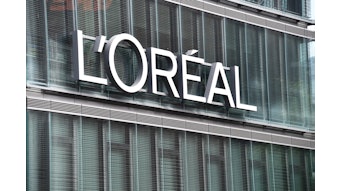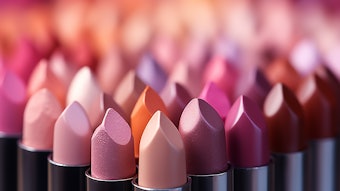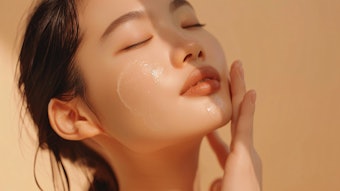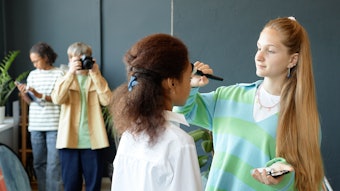In what may come to be a blow to India’s fast-growing fairness [similar to the whitening category] and antiaging categories, the Pharmacovigillance Committee, formed by the World Health Organization (WHO) in India, has issued a warning to consumers regarding skin-altering claims. According to committee member Nilima Kshirsahar, a professor at the Maharashtra University of Health Sciences in Mumbai and an emeritus professor in clinical pharmacology, the efficacy and the promise made by the various antiaging and fairness creams are yet to be scientifically tested for effectiveness and usage safety. She stated that consumers have to be wary of the trap of genuineness in cosmeceutical products.
According to Kshirsahar’s presentation, antiaging and fairness creams contain ingredients that are categorized as drugs, however these products enjoy the liberties not provided to other drugs and these ingredients lack the standardization that ensure effective results. Drugs are classified as substances that interfere, alter or otherwise impact the physiology of the body to produce change, while cosmetics only impact physical appearance. If a product is classified a drug, it must be subjected to three stages of research and testing before it can be launched in the Indian market. Until approximately a decade ago in India, cosmetics and drugs had very clear demarcation, but that demarcation is diminishing quickly, and the committee points to marketing tactics—noting claims such as increasing collagen, inducing higher cell turnover and impacting melanin production. According to Kshirsahar, many popular actives, due to the lack of a standardization in a number of facets, cause negative skin reactions. Therefore, the committee will continue to push to have a number of cosmetic ingredients and products classified as drugs.
Sunsilk Creates Line Specifically for Range of Indian Consumers
The hair care market, especially the shampoo and conditioner category, is evolving quickly in India. With increasing consumer awareness in regard to hair types and different hair care needs, the demand for shampoo variants is growing, and more and more brand owners are looking to meet this demand by launching variants to the Indian market. Unilever’s Sunsilk, one of the oldest multinational shampoo brands in the country, recently launched a series of seven shampoos that it has cocreated with seven of the world’s leading hair experts and stylists.
Out of the seven experts, four have created very specific products for the Indian market, deeming the hair quality and care needs to be very different in that part of the globe. British stylist Thomas Taw, for example, has created Damage Repair Shampoo, and Dream Soft and Smooth Shampoo. According to Narayanan Rajaram, vice president of hair care, Hindustan Unilever Limited, these new variants have been developed by the experts based on the consumer insights. In its research, the company found that the desire for these variants is not limited to consumers in urban areas who seek salonlike results from retail products; both men and women in smaller towns are aspiring for salon like treatment at affordable pricing. Though Sunsilk plays in the premium mass brand segment, the brand, through the new range, plans to tap into the small-town hair care aspirations.
India’s Wipro Acquires U.K. Brand
In order to enter the premium beauty market in India, as well as markets in Asia, Australasia and Africa, Indian consumer care company Wipro has acquired U.K. bath and shower brand Yardley for $45.5 million. Owned by Lornamead, which purchased the brand from P&G in 2005, Yardley is synonymous with sweet smelling, gentle fragrance and talcum powder in India. In fact its talcum powder is the highest selling product in the country and accounts for approximately 40% of Yardley’s revenues—followed by deodorants at 19%. Yardley’s lavender and red rose ranges are in high demand in India. While Wipro—with its flagship Santoor soap brand and range of toiletries, wellness and baby care products—will continue to source the powder and fragrance from third party manufacturers, it will start manufacturing Yardley soaps in its Indian facility. The acquisition is expected to help Wipro double its consumer care revenues from West Asia, from approximately $15 million to more than $30 million. With this its fifth acquisition in the last two years, Wipro plans to face competition from Hindustan Unilever Limited and P&G head on.
Vaseline Gets Court Order
Hindustan Unilever Limited’s (HUL) Vaseline brand, a very popular skin care brand in India, received a court order from the Kolkata (West Bengal) Civil Court banning the brand from using the word “Boro” in one of its latest campaigns for Vaseline Total Moisture Body Lotion. According to the civil court order HUL cannot run the advertisement either in print or in any audiovisual medium, irrespective of languages. In the campaign, Vaseline makes skin hydration comparisons to a cream with the “Boro” on its label.
The order came after Indian skin care brand Emami objected to the use of the word because it owns the Boroplus skin care range of products. “Emami has contended that the Vaseline advertisement categorically and unequivocally disparages Boroplus through wrong claims,” according to an Emami statement.
While an HUL spokesperson confirmed the issue, it was noted the court order had been obtained by Emami without giving due notice. “This is a deviation from the standard practice of providing due notice, and is, in fact, in contrast to the approach taken by HUL in a similar case,” wrote HUL in a statement, claiming HUL that the term “Boro” is not a trademark and is generic to various skin creams on the market.
In fact, there is conjecture that the Emami action was undertaken in reaction to HUL’s earlier notice regarding an advertisement for Emami’s talcum powder.
Estée Lauder Goes Nutritious
Indian women have shown the desire for makeup provides skin care benefits, in addition to making them look good. To meet the demand, Estée Lauder launched its Nutritious Vita-Mineral foundation range—which, according to the company, provides coverage while treating skin through pomegranate-sourced antioxidants. The range, available in liquid and powder formats, has been formulated with vitamins C and E, iron and potassium, as well as actives from pomegranate, with the goal to revive lost skin radiance. It also has included titanium dioxide to block UV. Though the pricing is premium, the brand is confident that Indian women will readily accept the product, particularly due to their proclivity to buy products that are nature-based, which is among the brand’s claims for the range.
Avène Plans to Enter India
French skin care brand Avène, which specializes in sensitive skin products, announced its entry into the Indian market. The company is partnering with dermatologists in the country to target women with sensitive skin, and the brand looks to tap into the increasing demand for high end skin care that is also gentle. According to the brand’s spokesperson, Avène will be quickly accepted in the country because of its light texture and soothing benefits.
Priyanka Bhattacharya is a writer and journalist covering the beauty, health and wellness industries in India. She is the contributing beauty features writer for several leading Indian women’s magazines.










